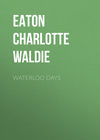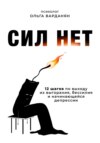Читать книгу: «Waterloo Days», страница 11
A TRIBUTE TO THE MEMORY OF THE DUKE OF WELLINGTON
WRITTEN THE DAY AFTER HIS FUNERAL
19th November, 1852.
The great Arthur, Duke of Wellington, whose latest achievements in war form the subject of the preceding pages, is no more. Long, long will the nation mourn the greatest, the most irreparable loss it ever sustained. The last sad and solemn scene has passed away. That great and wondrous man, who was its stay, its pride and glory, has been borne to his honoured tomb, amidst those splendid obsequies and funeral pomps with which his grateful country vainly sought to evince her unbounded admiration, her devoted love, and her profound veneration, for him who was her deliverer and preserver; to whom she owed her unprecedented triumphs in war – her prolonged blessings in peace.
"His funeral pall has been borne by nations – not by the nations he enslaved, but the nations he liberated; – the truncheons of eight armies have dropped from his grasp, and they were borne in the funeral procession by the companions and allies of his arms and victories."38 But, nobler far, he was followed to the grave by the blessings and the tears of millions; and he, alone, amidst all the great generals and conquerors of the earth, merits the proud eulogium, that he was at once a true patriot and a benefactor to his species.
Eloquence has vainly exhausted itself in enumerating his merits and services; but words are powerless to speak his praises. They are felt in the hearts of the people of England. Never did a chieftain, a conqueror, a hero, descend to the tomb so universally honoured and lamented. All ranks, all ages, all parties, unite in one unanimous sense of sorrow and bereavement. Every man seems to feel that he, personally, has lost a benefactor, a protector – almost a parent. And as the light of the sun is not missed until it is withdrawn, so even his value was not perhaps fully felt until he was lost.
But he is gone! "Quenched is that light which was the leading star to guide every Briton on the path of duty and honour."39 His name is surrounded by a pure halo of glory – not that ordinary vulgar glory which is the meed of the mere conqueror. No! the "hero of a hundred fights," who never knew defeat, sought not, valued not such glory; nay, more, he despised it; he never even named "its very name."40 His watchword was Duty, and the path of duty, honour, and patriotism, he trod. What a striking contrast did his career present to that of Napoleon, who sought that vain, false glory, through fields of fire and carnage, crushing the nations beneath his iron yoke, to aggrandise his selfish ambition, and reign the despot of a devastated world! How striking is the fact, that at the very time when, by the mysterious decree of Providence, a Buonaparte was sent to desolate and enslave the world, a Wellesley was given to save and deliver it! – the one, the Destroyer; the other, the Preserver. They seemed like the Incarnate Principles of Evil and of Good; but the Good triumphed: the conqueror and deliverer of distracted and bleeding Europe became its Pacificator; and through long years of peace and prosperity the nations which he saved from tyranny and ruin, have had reason to bless the name of Wellington.
Will it yet be permitted to one British heart – simply "An Englishwoman," who witnessed the most eventful scenes of his glorious campaigns, and proudly watched from first to last his high unblemished career – to offer, with the deepest veneration, a humble tribute of high and holy admiration upon the tomb of that hero whom, through life, her heart has worshipped.
The One True Hero! unequalled in the annals of history – unsurpassed even in the creations of Romance; He, who never headed the battalions of his countrymen except in a just and righteous cause, and never once failed to lead them on to victory and honour; He, who was not only the "Victor of Victors," the greatest of Conquerors, but also the greatest Pacificator the world ever saw – for he used the triumphs of War only to obtain the blessings of Peace; – He, whose first thought in victory was mercy, whose first care was to ensure, not the spoils, but the protection of the vanquished; – He, who, when he sheathed his conquering sword, consecrated the powers of his mighty genius, his mind, and life, to the welfare of his country; who worked her weal through evil report and good report, unmoved by the cabals of Faction, the intrigues of Power, and the slanders of Malignity; – He, whose Spirit, whilst he lived, was our Shield and Buckler, our Stay and Support; his counsels our best resource; his name our tower of strength; and his very existence our surest defence.
Alas, for England! Woe! woe to our country! The grave has closed over him; but his sacred ashes shall still guard our land. Around his honoured tomb every British heart will rally to rout and vanquish the hostile foe who dares to set foot on British ground. Every heart will be roused, every arm raised to repel the insult. His name shall be our everlasting panoply of defence; his life, his example, his memory, shall live in our hearts, and to the latest posterity England's proudest boast shall be the name of Wellington.
APPENDIX
A. (p. 44).
The desertion of General Bourmont did not take place during the Battle of Quatre Bras, but on the day before. He and his Staff joined the Prussian General Ziethen as the French were advancing on Charleroi, on June 15. The mistake, however, is hardly the writer's fault, as Sir F. Head, the English authority for the statement, misprints the date. (See Hooper's Waterloo, p. 68.)
B. (p. 93).
The decisive part which the Prussian army played in the Battle of Waterloo is often overlooked, as it is here. Readers must bear in mind that the junction of the two armies of the Allies was preconcerted by Wellington and Blücher, and that the battle would not have been fought under other circumstances. It is true that the Prussian advance from Wavre, whence it had retreated after the Battle of Ligny on the 16th, was delayed, whereby an undue strain was placed upon and nobly borne by the English infantry, but the first Prussian corps under Bülow was known to be approaching by three o'clock. Their advance on the village of Planchenoit, on the light of the French position, caused Napoleon to detach to his right 16,000 French troops, out of the 72,000 with which he began the battle, and at last engaged his attention so far as that he left Ney to conduct the attack upon Wellington's army. Though it may be true, as Mrs. Eaton states, that the Prussians did not "make their appearance" (i. e. to the British troops) till seven o'clock (p. 130), they were nevertheless in conflict with the French for some hours before, and considerably modified their attack on Wellington's position.
C. (p. 145).
The allegations of cowardice brought against Napoleon at the time, and frequently repeated, do not meet with the slightest support from accurate historians. It is almost certain that when Wellington, on the 17th, withdrew his army from Quatre Bras to the position in which he accepted battle on the following day, Napoleon was with the head of the French column which followed up the retreat, and was within cannon shot of the British artillery and of Lord Uxbridge, who commanded the cavalry.
At the close of the Battle of Waterloo he showed no lack of courage. "During the attack of the Imperial Guard he had ridden as far as the orchard of La Haye Sainte; when the Guard recoiled he had rallied them; when the 52nd and other regiments of the brigade pursued so promptly he had gradually fallen back with the steadier masses of the fugitives, surrounded by the truly dévourés of those days, the veterans of the Guard." —Hooper, p. 238.
It was only when the Prussians, almost fresh upon the field, undertook the pursuit, that he diverged from the press and rapidly made his way to Charleroi, where he obtained a carriage.
D. (p. 148).
The celebrated order of Wellington to the Guards is perhaps, in its popular form, not quite authentic. When towards the close of the battle Ney, unhorsed, was leading the column of the Old Guard up the slope of the British position, behind the crest of which the British infantry was lying, Wellington said, "Up, Guards, and make ready!" they "sprang to their feet within fifty yards of the astonished French, and poured in a volley which struck the column like a bolt of iron … and when the Duke cried, 'Charge!' and the British Guards dashed forward with a cheer, Ney's veterans broke and fled." —Hooper, p. 231. The approach of cavalry caused the British to retreat to their position on the hill, but in the meantime the second column of the French Guard had been routed by a bold and skilful charge of the 52nd Regiment, followed up by cavalry, whilst the Prussians were successfully pushing back the right wing of the French. Then the English leader saw that his time, at last, was come. To quote again Mr. Hooper's stirring description: "On the ridge near the Guards, his figure standing out amidst the smoke against the bright north-western sky, Wellington was seen to raise his hat with a noble gesture, the signal for the wasted line of heroes to sweep like a dark wave from their coveted position, and roll out their lines and columns over the plain. With a pealing cheer, the whole line advanced just as the sun was sinking, and the Duke, sternly glad, but self-possessed, rode off into the thick of the fight, attended by only one officer, almost the last of the splendid squadron which careered around him in the morning." – P. 234.
E. (p. 149).
Though the meeting of Wellington and Blücher at La Belle Alliance has been made the subject of a well-known picture, it is not founded on fact. The actual meeting took place nearer Rossomme, some distance further south on the Charleroi road, along which the routed army was struggling. From this point the pursuit was left to Blücher's troops.











